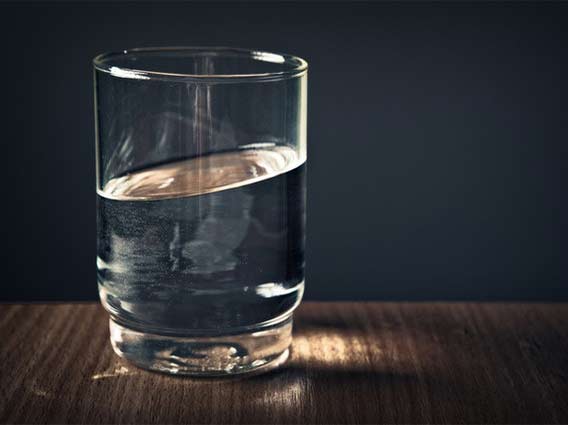Raise a Glass (of Water) to Improve Your Health
Researchers at Arizona State University have found a disturbing connection between underhydration and chronic disease and higher mortality rates, according to a release from the University.
According to recent data collected by the Centers for Disease Control and Prevention (CDC) for the National Health and Nutrition Examination Survey, over 65% of adults ages 51 to 70 in the United States are not properly hydrated. Concerned by these findings, ASU College of Health Solutions Professor and director of the university’s Hydration Science Lab Stavros Kavouras decided to investigate potential related health outcomes.
Kavouras and his colleagues found that, in addition to an increased prevalence in chronic conditions like obesity, high waist circumference, insulin resistance, diabetes, low HDL, hypertension and metabolic syndrome, underhydration was associated with 4.21 time greater chronic disease mortality.
“Not only was underhydration linked to chronic health conditions, but we were also able to identify that underhydration was linked to life expectancy,” Kavouras said. “There was a significantly higher association with mortality from chronic disease in the group that was underhydrated.”
While, according to the Medical Subject Headings of the US National library of medicine defines dehydration as “the condition that results from excessive loss of water from a living organism,” “underhydration” occurs “when someone has elevated urine osmolality or does not meet the dietary water intake reference values,” according to an editorial published by Kavouras in the European Journal of Nutrition. It’s also important to note that dehydration is acute, while underhydration is chronic, and often goes unnoticed.
Kavouras’ past research has shown that people who drink too little water have elevated levels of antidiuretic hormones and the stress hormone cortisol in their systems, which have been linked to diabetes and metabolic syndrome, hypertension and obesity, respectively.
Luckily, underhydration is something that can be easily tracked. By monitoring the color of your urine and how often you urinate you can easily determine whether or not you’re adequately hydrated. “We’re finding that statistically combined, those two biomarkers have almost excellent diagnostic ability of underhydration,” Kavouras said.
Your urine should be light in color and you should be urinating between six and seven times a day. If this isn’t the case, it’s time to pour yourself a glass of plain, ol’ high quality H2O.














